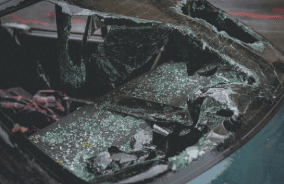If you have recently purchased a car, then you are probably looking into getting insurance for that vehicle as well. If you already own a vehicle and have been paying car insurance for several years but never had to claim anything, you might be wondering if it really is worth your money to pay more for another year’s worth of insurance.
The first thing to note is that driving without insurance is an offense in nearly all states. There are just a couple of states that grant you the permission to not have car insurance and still be able to drive. In any case, having insurance for your vehicle is highly recommended, even in states where you aren’t required to. If you don’t have car insurance and are involved in a car accident, here is what could happen.
States That Require Car Insurance
If you live in a state where car insurance is mandatory, then being caught without insurance can lead to severe consequences. Even if it isn’t for a car accident, the fact that you don’t have insurance itself can lead to your driver’s license being suspended, or your license being revoked, fines, and even jail time. If you have an accident with no insurance, and you are at fault, you will be eligible for these penalties as well as be liable for reimbursing the affected party for their medical and vehicle claims, which can put a hefty dent in your finances.
What’s more, if you don’t have the cash/finances to settle the dispute at the time it happened, you could also be set up for wage garnishment. Wage garnishment is when the expenses are taken directly from your salary, for as many months as necessary, until you have paid the entire amount you owe. The only exception to this situation would be if you live in a no-fault state.
States That Don’t Require Car Insurance
Only Virginia and New Hampshire don’t require you to have car insurance, but even in these states, you need to have paid the Department of Motor Vehicles to be able to drive without insurance. According to information provided by Jebaily Law Firm, even if you have paid the fee to the Department of Motor Vehicles, you are still financially responsible for any injuries or damages resulting from an accident. Moreover, not only do you have to pay for your repair costs, but the other party involved has the right to recover costs from you, which means there is a high chance that you can be sued.
In this case, you will also have to deal with legal fees out of your own pocket. When you also have to cover your own expenses, this can work out to be an extremely expensive proposition. If you aren’t at fault and the other party has insurance, then you’ll be eligible to file for third-party compensation from their insurance provider.
States With No-Fault Policies
If you live in a no-fault state, having car insurance is even more important because the insurance system works differently. Generally, the person involved with you in the accident, or their insurance provider, will be responsible for compensating you for your losses. But in no-fault states, you have to contact your own insurance service to claim compensation. For these reasons, even in no-fault states, you are required to have a basic level of personal injury protection (PIP), bodily injury protection, and property damage liability coverage. This helps to protect you in the case of an accident, otherwise, you will have to pay for everything out of your own pocket.
If the other party decides to sue you, then going to trial is another expense you will have to bear. If you are the victim of an accident, you still won’t have any cover, since the insurance of the other party is not liable to cover your expenses. In this case, having your own protection is the only solution if you don’t want to have to pay for everything yourself.
In no-fault states, the ability of a person to sue another in the case of an accident depends on whether the court deems the injuries as ‘severe’. What is considered severe can vary from state to state, so this is something you should look into with a legal professional. Similarly, in at-fault states, the medical damages and/or property damages have to meet a certain threshold before a person is allowed to sue the other party over their loss. Again, this minimum threshold varies.

In any case, not having car insurance will only work against you. You could face legal consequences if you are pulled over and don’t have car insurance. You could also face major financial consequences if you have an accident and don’t have insurance to cover for yourself and the other party. In the case that you do have an accident, it is recommended that you take swift action. In both at-fault and in no-fault states, there is a statutory period within which you are required to take action, typically 3 years. If you don’t act within this time, you will lose out on any opportunities to seek compensation. Taking timely action is key, so get in touch with a professional who can help you out and start the process today.




